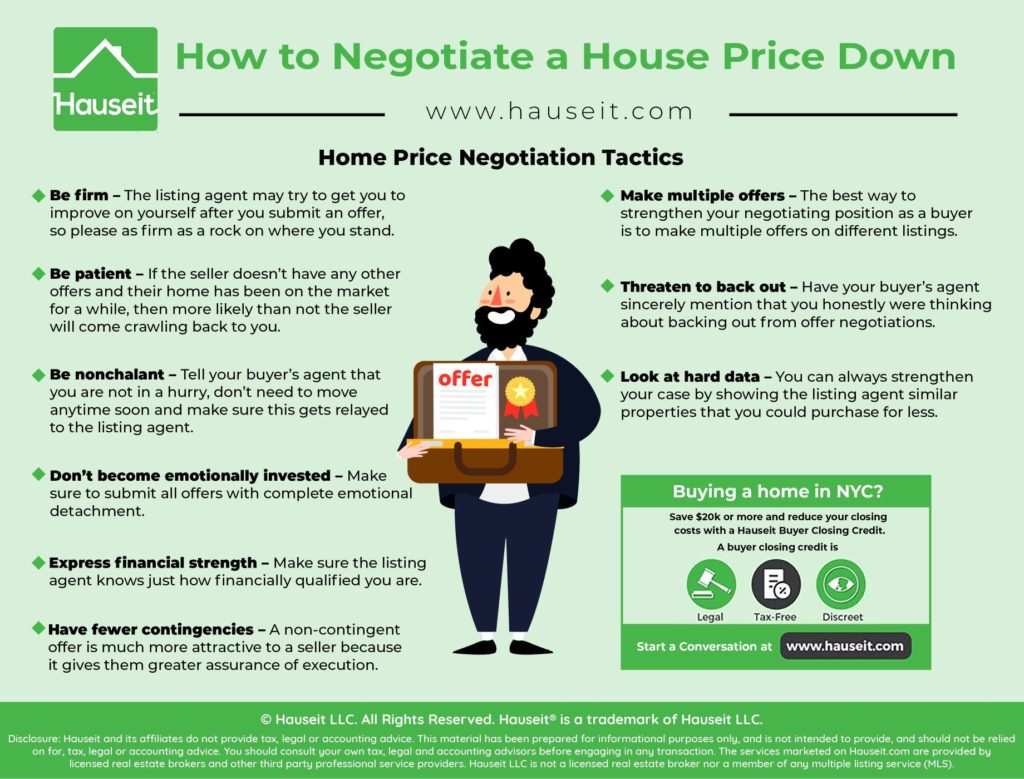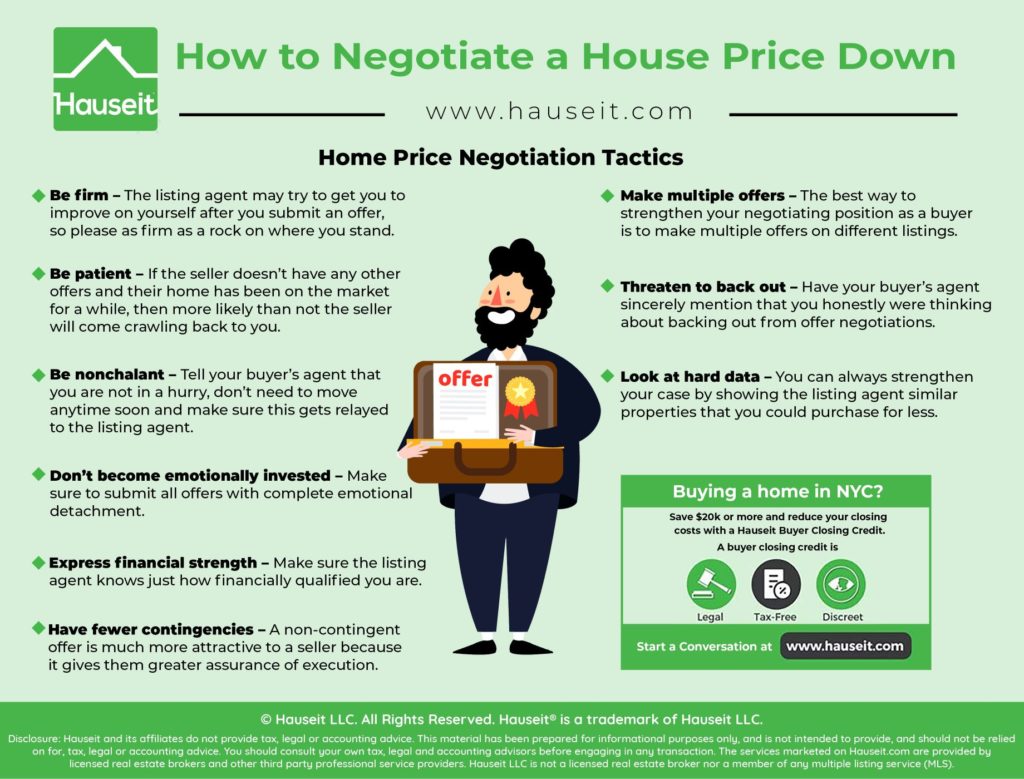When it comes to securing the best real estate deals, one might be surprised to learn that the ratio of successful negotiations often hinges more on strategy than on market conditions. Master negotiators are those who understand the delicate balance of leverage, timing, and personal rapport. The numbers don’t lie—having a well-thought-out negotiation plan can often yield savings of up to 5-10% of the property’s asking price.
From the earliest days of barter and trade, the art of negotiation has been pivotal in securing favorable outcomes. History shows that those equipped with in-depth market knowledge and diligent preparation consistently close better deals. A recent survey revealed that buyers who conducted comprehensive property research and enlisted skilled negotiators were 60% more likely to purchase properties below market value.
- Research the market to understand current trends and property values.
- Prepare by setting clear financial limits and goals.
- Build rapport with the other party to facilitate open communication.
- Make a compelling yet reasonable initial offer.
- Be willing to compromise and explore alternative solutions.
- Consult with a real estate agent or lawyer for expert advice.

The Importance of Negotiation Skills in Real Estate
Strong negotiation skills can significantly impact the outcome of real estate deals. Without effective negotiation, buyers might pay more than necessary, and sellers may not get optimal prices. Both sides benefit from skilled negotiators who can find a middle ground.
One key benefit is financial savings. Buyers often secure lower prices, while sellers can reduce unnecessary concessions. These savings can amount to thousands of dollars.
Good negotiators also minimize disputes. By understanding both parties’ needs, they facilitate smoother transactions. This helps avoid costly legal issues down the line.
Furthermore, solid negotiation builds relationships. Trust and rapport between parties can lead to future opportunities. This is particularly valuable in ongoing real estate investments.
Get to Know Your Market
Understanding the real estate market is crucial before making any decisions. By knowing current trends, you can make informed choices that protect your investment. Researching the market can save you from costly mistakes.
Research Market Trends
To start, examine market trends. Look for patterns in property prices, rental rates, and sales volumes. This information helps identify whether it’s a buyer’s or seller’s market.
Use resources like online real estate portals and local market reports. These tools offer valuable data on property values and demand. Market trends often indicate the best times to buy or sell.
Keep an eye on economic factors. Interest rates, employment rates, and regional developments can all influence market conditions. Being aware of these can give you an edge.
Analyze Comparable Sales
Comparing similar properties, also known as comparables, is essential. This involves looking at recent sales of properties like the one you’re interested in. Comparables provide a benchmark for pricing.
Check the features of each comparable property. Factors such as location, size, and condition can impact value. This helps you set realistic expectations.
Use the data to negotiate better deals. If comparables show lower prices, you have a strong case to offer less. This makes your offer more competitive.
Understand Local Regulations
Local regulations can greatly affect real estate transactions. Zoning laws, property taxes, and building codes all play a role. Being aware of these regulations can prevent legal issues.
Visit your local zoning office or consult a real estate lawyer. These professionals can provide detailed information on what is permissible. Knowing this helps you plan your purchase or sale effectively.
Stay updated on any changes in regulations. Laws can vary from one area to another, so constant vigilance is key. This keeps you compliant and informed.
Pre-Negotiation Strategies
Before entering negotiations, thorough preparation is vital. Knowing the property inside out, including any flaws, gives you a solid foundation. A comprehensive property inspection can reveal important details.
Set your budget clearly before negotiations begin. This helps you stay focused and avoid overpaying. Being clear on your financial limits is crucial.
Research the seller’s background and motivations. Understanding their needs allows you to tailor your offers more effectively. This can result in a better deal for both parties.
Practicing your negotiation pitch can boost confidence. Rehearse with a friend or mentor to fine-tune your approach. Being well-prepared ensures you’re ready for any scenario.
Effective Communication in Negotiation
Clear communication is the backbone of successful negotiation. Without it, misunderstandings can derail discussions. Being articulate and precise helps in conveying your points effectively.
Active listening is equally important. By fully understanding the other party’s perspective, you can respond more appropriately. This builds trust and invites collaboration.
Non-verbal cues also play a significant role. Gestures, facial expressions, and body language can sometimes speak louder than words. Being mindful of these cues can enhance your communication.
Using positive language can foster a cooperative atmosphere. Phrases like “I understand” and “Let’s find a solution” can make the negotiation smoother. Positive words encourage a win-win mindset.
Know when to pause and reflect. Taking a moment to think before responding can prevent hasty decisions. This shows that you value the discussion and are considering all aspects carefully.
Finally, clarity should be maintained in all written communication. From emails to formal contracts, ensure that all terms are clear and unambiguous. This reduces the risk of future disputes.
Building Rapport and Understanding the Other Party
Forming a connection with the other party is key in negotiations. Building rapport creates a friendly atmosphere which can lead to more cooperative discussions. People are more likely to agree with someone they trust and like.
Take time to learn about the other party’s background. Knowing their needs, motivations, and concerns can help tailor your approach. This understanding allows you to offer solutions that benefit both sides.
Acknowledge the other person’s feelings and opinions. Simple phrases like “I understand where you’re coming from” can go a long way. Empathy fosters a sense of partnership.
Share a bit about yourself, too. Personal stories or common interests can build a connection. Mutual respect grows from mutual understanding.
Maintain professionalism and integrity. Honesty and transparency build trust, making it easier to reach an agreement. Trustworthy behavior is often reciprocated.
Finally, stay patient and open-minded. Everyone has their point of view, and flexibility can lead to creative solutions. Patience and openness make the negotiation process smoother.
The Role of Real Estate Agents in Negotiation
Real estate agents play a crucial role in the negotiation process. They have extensive market knowledge and experience, helping you make informed decisions. An agent’s expertise can give you a significant advantage.
Agents act as intermediaries between buyers and sellers. Their goal is to ensure both parties reach a mutually beneficial agreement. They handle the communication, which can be emotional or stressful for the individuals involved.
Agents also provide valuable advice on pricing and terms. They evaluate market conditions and comparable properties to suggest fair offers. This helps clients avoid overpaying or underselling.
In addition to their negotiation skills, agents handle the paperwork. Real estate transactions involve many legal documents, and agents ensure everything is filled out correctly. This minimizes the risk of legal issues later on.
Their network of contacts can also be a significant asset. Agents often know other professionals, such as inspectors and lenders, who can assist in the process. This network can streamline the buying or selling experience.
Finally, a good agent remains objective. They stay focused on their client’s goals without getting swayed by emotions. This objectivity is essential for making the best possible decisions.
Legal Aspects of Real Estate Negotiation
Understanding the legal aspects of real estate negotiation is vital. Contracts and agreements must be legally sound to protect all parties involved. A misstep in legal matters can lead to serious consequences.
One of the essential documents is the purchase agreement. This contract outlines the terms and conditions of the sale, including price, closing date, and contingencies. It’s crucial that both buyers and sellers understand every detail.
The contingencies section in contracts is significant. Common contingencies include financing approval, property inspections, and appraisals. These clauses provide an exit strategy if certain conditions are not met.
Disclosure requirements also play a role. Sellers must disclose known defects or issues with the property. Failure to do so can result in legal action from buyers.
Zoning laws and property rights must be considered as well. Local zoning regulations dictate what can be built or modified on a property. Understanding these laws helps prevent future conflicts with neighbors or authorities.
Lastly, consult a real estate lawyer for guidance through complex transactions. Lawyers ensure all documents comply with state and local laws. They offer peace of mind by safeguarding your interests throughout the negotiation process.
How to Handle Negotiation Deadlocks
Negotiation deadlocks can be frustrating, but they are not insurmountable. The first step is to remain calm and composed. Emotions can cloud judgment and make it harder to find solutions.
Identifying the core issues causing the deadlock is crucial. Often, disagreements stem from misunderstandings or misaligned priorities. By pinpointing the root problems, you can focus on resolving them effectively.
Exploring alternative solutions is another key strategy. Think outside the box and consider creative compromises. Flexibility can help break the deadlock and move the negotiation forward.
Sometimes, taking a break can be beneficial. Stepping away from the negotiation table allows both parties to cool down and rethink their positions. This break can lead to fresh perspectives and renewed willingness to compromise.
Involve a neutral third party if necessary. Mediators or arbitrators can offer objective viewpoints and facilitate communication. They assist in finding common ground and resolving conflicts.
Finally, remain committed to the process. Deadlocks are a normal part of negotiation, but persistence pays off. Stay focused on reaching a mutually beneficial agreement.
Frequently Asked Questions
Negotiating real estate deals can be complex, and many questions arise in the process. Here are five frequently asked questions to help guide you.
1. What are the key factors to consider when making an offer?
When making an offer, it’s essential to know the market value of similar properties. This helps you avoid overpaying and sets a realistic expectation for negotiations.
Consider the condition of the property, any necessary repairs, and your financial limits. Also, understand the seller’s motivations; a motivated seller may accept a lower offer.
2. How can I build rapport with the seller during negotiations?
Building rapport starts with effective communication. Listen attentively to understand the seller’s needs and concerns.
Show empathy and agree on small issues first to foster trust. Being respectful and straightforward often leads to more cooperative negotiations.
3. Why is it important to get a home inspection before finalizing a deal?
A home inspection reveals any hidden problems with the property that could cost you later. It gives you leverage in negotiations if repairs are needed.
The report can also help you decide if this investment meets your expectations and budget constraints. Always factor in potential repair costs when making an offer.
4. What role does timing play in real estate negotiations?
Timing is crucial; market conditions change frequently. For example, buying during a buyer’s market gives you more negotiating power as there are fewer buyers than available properties.
Sellers may be more willing to negotiate towards the end of financial quarters or years, aiming to close deals promptly for accounting purposes.
5. How do I handle multiple offers on a property I’m interested in?
If you’re competing against multiple offers, start by submitting your best possible bid without exceeding your budget.Set yourself apart with pre-approved financing as well as clear terms.
Conclusion
Negotiating the best real estate deals requires a blend of preparation, effective communication, and adaptability. By understanding the market, building rapport, and leveraging legal knowledge, you can confidently navigate complex negotiations. Preparation is the key to successful outcomes.
Remember, patience and persistence are essential in overcoming negotiation deadlocks. Whether you’re a buyer or seller, these strategies provide a solid foundation for achieving favorable results. An informed approach ensures a smoother, more efficient transaction.

